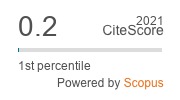A Novel Approach for Exoplanet Classification on Kepler Light Flux Data
Abstract
NASA’s Kepler mission to search for extrasolar planets has collected data from hundreds of thousands of star systems and has discovered nearly 1000 confirmed exoplanets in addition to over 3000 unconfirmed candidates. The mission discovers exoplanets using transit photometry, which detects the transit of a planet in front of a star as transient drops in stellar intensity. We propose a novel machine learning based approach to detect these exoplanets from Kepler’s light flux dataset using robust preprocessing methods. We observed the dataset to be a highly imbalanced one having positive classes totalling less than 1% of the entire dataset and further, there was an inherent non-uniformity in the recorded data for positive samples. Our novel approach comprises applying Normalisation followed by Gaussian Smoothing and Fourier Transformation on this dataset before classifying it using Linear Support Vector Classifier. On such challenging data, our approach pushes the test F1 score to 1.0. While pursuing this objective of maximising test precision and recall, we also perform a comparative study of several data transformations in combination with various state-of-the-art modelling algorithms. We also compare our results with previous work and highlight the improvements obtained via our methodology.



